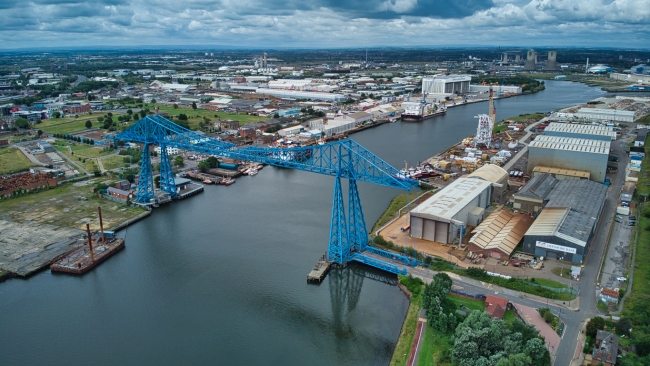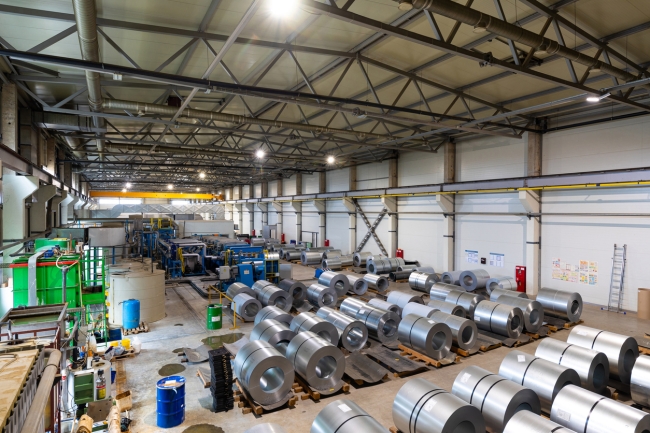8 minute read • published in partnership with Irwin Mitchell
Insight: The ins and outs of Freeports in the UK – what manufacturing businesses should know
Freeports have become a focal point in discussions surrounding economic growth and international trade in recent years. Bryan Bletso from Irwin Mitchell explores what manufacturing businesses should know.
The concept of Freeports has gained significant attention, offering businesses a range of benefits and opportunities. Whether you are an established business in the UK or overseas, understanding the nuances of Freeports and how to get involved can unlock new avenues for growth and investment.
Latest Freeports Assigned in 2021
As part of the government’s plan to boost economic growth, Rishi Sunak, who was the Chancellor of the Exchequer at the time, announced the assignment of eight new Freeports in England in 2021. The announcement of two Scottish Green Freeports and two Welsh Freeports followed in early 2023. These new Freeports are:
1 – East Midlands
2 – Freeport East (Felixstowe and Harwich)
3 – Humber
4 – Liverpool City Region
5 – Plymouth and South Devon
6 – Solent
7 – Teesside
8 – Thames
9 – Firth of Forth Green Freeport
10 – Inverness and Cromarty Firth Green Freeport
11 – Celtic (Milford Haven and Port Talbot)
12 – Anglesey
These Freeports are strategically located across the country, aiming to drive investment, job creation, and regional growth. All of them have a different focus; for example, the Liverpool City Region Freeport will focus on creating an advanced Manufacturing and digital logistics location, while the East Midlands Freeport will focus on clean growth and multimodal connectivity.

Picture: Getty/iStock
The UK and Scottish governments have collaborated to develop a green freeport model in Scotland that takes advantage of the region’s unique opportunities. The selection of freeport locations was done through an open and competitive process, with the Inverness & Cromarty Firth and the Firth of Forth regions being chosen as successful applicants. These Freeports will receive up to £26 million in funding from the UK Government and are expected to create around 75,000 high-quality jobs and attract £10.8 billion of investment. With a focus on renewable and low-carbon energy industries, the Inverness & Cromarty Firth Freeport alone aims to generate 25,000 jobs and £4.8 billion of investment, contributing to the transition to a net-zero economy. There is a similar situation in Wales and further information can be found here.
Tax Advantages
There are a host of tax benefits you can take advantage of by locating in a Freeport tax site.
• Freeports offer an enhanced rate of structures and buildings allowance, accelerating tax relief for qualifying expenditure on constructing, renovating, or adapting premises. This enhanced rate of 10% per annum, compared to 3% outside Freeport tax sites, provides businesses with significant tax benefits until 30 September 2026.
• Freeport tax sites offer potential total relief from Stamp Duty Land Tax on qualifying commercial properties, boosting the commercial property market and facilitating businesses’ establishment within a Freeport until 30 September 2026. Scottish Green Freeports will offer equivalent Land and Buildings Transaction Tax Relief.
• Freeports provide 100% first-year allowances for qualifying expenditure on plant and machinery primarily used within Freeport tax sites. This accelerated tax relief is available until 30 September 2026, stimulating investment in key plant and machinery for businesses operating within a Freeport.
• Freeport tax sites offer full relief on business rates on qualifying new properties and partial relief on expanded properties, providing significant financial advantages for businesses. This relief can be claimed until 30 September 2026 and applies for five years from receipt. Scottish Green Freeports will offer equivalent Non-Domestic Rates relief.
• Freeports also offer 0% Employer NICs on salaries up to £25,000 p/a for three years per eligible employee. Eligible employees are new hires spending over 60% of their working time within the Freeport and hired between April 5, 2022, and April 6, 2026.
Streamlined Customs Processes
Freeports offer simplified customs procedures in dedicated customs sites, allowing for faster clearance of goods, which has been an increasing issue since the UK left the European Union. This can lead to improved supply chain efficiency and reduced administrative burdens for businesses. Tariff benefits in Freeports include duty deferral if goods are stored on-site and duty inversion if finished goods exit the Freeport. Businesses can take advantage of savings from duties that do not need to be paid on outside goods and attract a lower tariff compared to their component parts. Additionally, there is duty exemption for goods that are re-exported from a Freeport.
Trade benefits in Freeport sites provide simplified import procedures, building upon existing customs facilitations and procedures. This allows businesses to benefit from more streamlined and direct procedures, facilitating smoother trade operations.
VAT benefits in Freeports include a VAT suspension until goods leave the tax site and enter into free circulation in the UK. This provides businesses with more efficient management of their operational capital.
Customs sites that offer these benefits can be set up anywhere within the outer boundary of the Freeport and goods can be moved between customs sites without entering free circulation.

Picture: Getty/iStock
Supportive planning environment
Freeports offer a supportive planning environment with strong engagement from local planning authorities, facilitating accelerated business development. Some Freeport sites have Local Development Orders in place, providing increased planning certainty for new buildings. Public sector support ensures that Freeports receive investments in land remediation, site preparation, and skills programs, making them attractive investment propositions. Additionally, the nationwide extension of Permitted Development rights enables a wider scope of development on operational land, allowing plans to progress more efficiently through the planning system.
Investment Incentives
Freeports can attract both domestic and foreign investment by offering incentives such as tax breaks, grants, and access to infrastructure. This can create new business opportunities and drive economic growth in the region.
Getting Involved in a Freeport
1 – Understand the Benefits: The first step for businesses is to understand the benefits that Freeports offer. These benefits include duty and tax advantages, streamlined customs processes, and investment incentives. By understanding how these advantages align with their business goals, companies can assess the potential value of operating within a Freeport.
2 – Identify Opportunities: Once businesses have familiarised themselves with the benefits, they can identify specific opportunities within the Freeport. This may involve assessing how their products or services align with the sectors or industries targeted by the Freeport for growth and innovation. Identifying potential partnerships or collaborations with other businesses within the Freeport can also be advantageous.
3 – Research the Freeport’s Regulations: Each Freeport and its sites may have its own set of regulations and requirements that businesses must comply with. It is crucial to thoroughly research and understand these regulations before getting involved. This includes understanding the customs, tax, and regulatory requirements specific to the Freeport, as well as any additional operational guidelines or restrictions that may apply.
4 – Engage with Freeport Authorities: Businesses should proactively engage with the authorities responsible for overseeing the Freeport. This may include contacting the local authorities, HM Revenue and Customs (HMRC), or other relevant bodies including the Department for Business & Trade. Engaging with these authorities can provide businesses with valuable information and guidance on how to navigate the process of operating within the Freeport.
5 – Seek Expert Advice: Given the complexity of Freeport operations, seeking expert advice can be invaluable. This may involve consulting with legal, tax, or customs specialists who have experience and knowledge in Freeport regulations. These experts can provide guidance on compliance, tax planning, and other aspects related to operating within a Freeport.
6 – Establish the Necessary Infrastructure: Businesses will need to establish or adapt their infrastructure to operate within the Freeport. This may involve setting up a physical presence within the designated area, such as a warehouse or manufacturing facility. Ensuring that the infrastructure aligns with the requirements and objectives of the Freeport is crucial for businesses to fully leverage the benefits available.
7 – Collaborate and Network: Freeports offer opportunities for collaboration and networking with other businesses within the designated area. Businesses should actively seek out partnerships, joint ventures, or supply chain collaborations that can enhance their operations within the Freeport. Building strong relationships within the Freeport community can lead to increased business opportunities and synergies.

Picture: Getty/iStock
Key Issues and Legislation
1 – Compliance and Regulations: While Freeports offer various advantages, businesses must ensure compliance with relevant customs, tax, and regulatory requirements. It is crucial to understand the specific regulations governing the Freeport in which they operate to avoid any legal complications.
2 – Security and Risk Management: Customs sites within Freeports are required to operate under strict control to operate effectively without risk of criminal activity. Therefore, businesses operating a customs site must demonstrate to HMRC how they will implement robust security measures and risk management practices during the application process.
3 – Impact on Local Economy: Critics argue that Freeports may divert economic activity from surrounding areas, leading to potential negative consequences for nearby businesses. It is essential for businesses to consider the potential impact on the local economy and engage in responsible business practices to mitigate any adverse effects.
4 – Legislation and Oversight: The establishment and operation of Freeports in the UK are governed by specific legislation. The government has introduced the Freeports Tax Site, Customs and Excise Regulations 2021, which provide the legal framework for Freeports. Additionally, oversight and regulation are carried out by various authorities, including HM Revenue and Customs (HMRC) and local authorities. It is worth pointing out that there is no deregulatory agenda in Freeports. The Freeport model ensures that the UK’s high standards with respect to security, health and safety, workers’ rights, data protection, biosecurity, tax avoidance and the environment will not be compromised. Freeports.
Freeports play a vital role in driving economic growth and attracting investment in the UK. Understanding the benefits, navigating regulations, and engaging with authorities are critical steps for businesses seeking to leverage the advantages offered by Freeports.
It is worth noting that businesses should not only consider opportunities within UK Freeports but also explore opportunities overseas, such as in the Middle East. Clients should be aware of the potential benefits and advantages available in international Freeport locations.
How Irwin Mitchell can help
Irwin Mitchell can advise businesses based overseas that are looking to move to the UK and that want to locate in a Freeport. The firm can also support organisations in the UK which are based in a Freeport zone to attract potential investment or new opportunities from foreign corporates and foreign direct investment (FDI). The firm has produced a new report on FDI which examines where investment is coming from, which sectors it is being attracted to, and what the latest hotspots in the UK are for attracting FDI. Download the report here
